In the realm of culinary appliances, the contact grill has emerged as a staple in modern kitchens. This versatile cooking tool has not only evolved in terms of technology but has also adapted to cater to the unique preferences and aspirations of consumers. The bespoke contact grill market, in particular, has been gaining traction, offering personalized solutions that resonate with the desire for unique and high-quality kitchen experiences. As we delve into the intricacies of this niche market, it becomes clear that the future of contact grills is not just about cooking; it’s about crafting a personalized journey in the heart of the home.
Introduction to Bespoke Contact Grills
Bespoke contact grills have emerged as a cutting-edge trend in the culinary appliance industry, offering a unique blend of functionality and personalization. These grills are not just kitchen gadgets; they are the epitome of modern cooking technology designed to cater to the specific needs and preferences of each homeowner.
In the realm of cooking, contact grills have long been a favorite among enthusiasts and casual chefs alike. However, the traditional models have their limitations, often lacking the versatility and precision that today’s discerning cooks demand. This is where bespoke contact grills step in, promising a level of customization that is as unique as the hands that will wield them.
The concept of bespoke, in this context, refers to tailor-made appliances that are crafted to match the exact specifications and desires of the customer. These grills are not off-the-shelf products; they are the result of a collaboration between the consumer and the manufacturer, where every detail from the size and shape to the heating elements and temperature controls can be fine-tuned.
From the moment a consumer decides to invest in a bespoke contact grill, they embark on a journey of exploration and customization. The process typically begins with an in-depth consultation, where the user’s cooking habits, preferred recipes, and kitchen layout are discussed. This information is crucial in determining the features that the grill will need to have.
One of the standout features of bespoke contact grills is their ability to mimic the cooking experience of various traditional grilling methods. Whether it’s the charred flavor of a barbecue, the even cooking of a griddle, or the precision of a skillet, these grills can replicate these outcomes with the touch of a button. This versatility is particularly appealing to those who enjoy the diversity of grilling but lack the space or time for multiple appliances.
Another aspect that sets bespoke contact grills apart is their advanced temperature control systems. These grills often come with digital interfaces that allow users to set precise temperatures and even monitor the cooking process in real-time. Some models even have integrated timers and alarms to ensure that food is cooked to perfection without the need for constant supervision.
The materials used in the construction of bespoke contact grills are also a point of distinction. High-quality stainless steel is the norm, providing durability and a sleek, modern look. Some manufacturers go a step further by offering finishes that can be matched to the rest of the kitchen’s decor, ensuring that the grill is not just a functional appliance but also a stylish addition to the space.
Customization extends beyond the aesthetic and functional aspects of the grill itself. Many bespoke models offer a range of attachments and accessories, from various grill plates to built-in spice racks and temperature probes. This allows users to expand their culinary repertoire and tailor the grill to their specific cooking style.
In the European and American markets, where kitchen appliances are often seen as a reflection of one’s lifestyle, bespoke contact grills have found a niche audience. The appeal of having a high-performance, tailor-made grill that can elevate both the taste and presentation of food is undeniable.
It’s worth noting that the bespoke market is not without its challenges. The cost of customization can be significant, and the production time may be longer than that of standard appliances. However, for those who are willing to invest in a truly personal cooking experience, the benefits far outweigh the drawbacks.
The rise of bespoke contact grills also speaks to a broader trend in the kitchen appliance industry: the move towards personalization. Consumers are no longer satisfied with one-size-fits-all solutions; they want appliances that cater to their individual needs and preferences. Bespoke contact grills are a testament to this shift, offering a glimpse into the future of kitchen technology where every appliance is as unique as the person using it.
As the demand for bespoke contact grills continues to grow, we can expect to see even more innovation in the design and functionality of these appliances. From smarter interfaces and advanced cooking technologies to sustainable materials and eco-friendly designs, the future of bespoke contact grills looks bright and full of exciting possibilities.
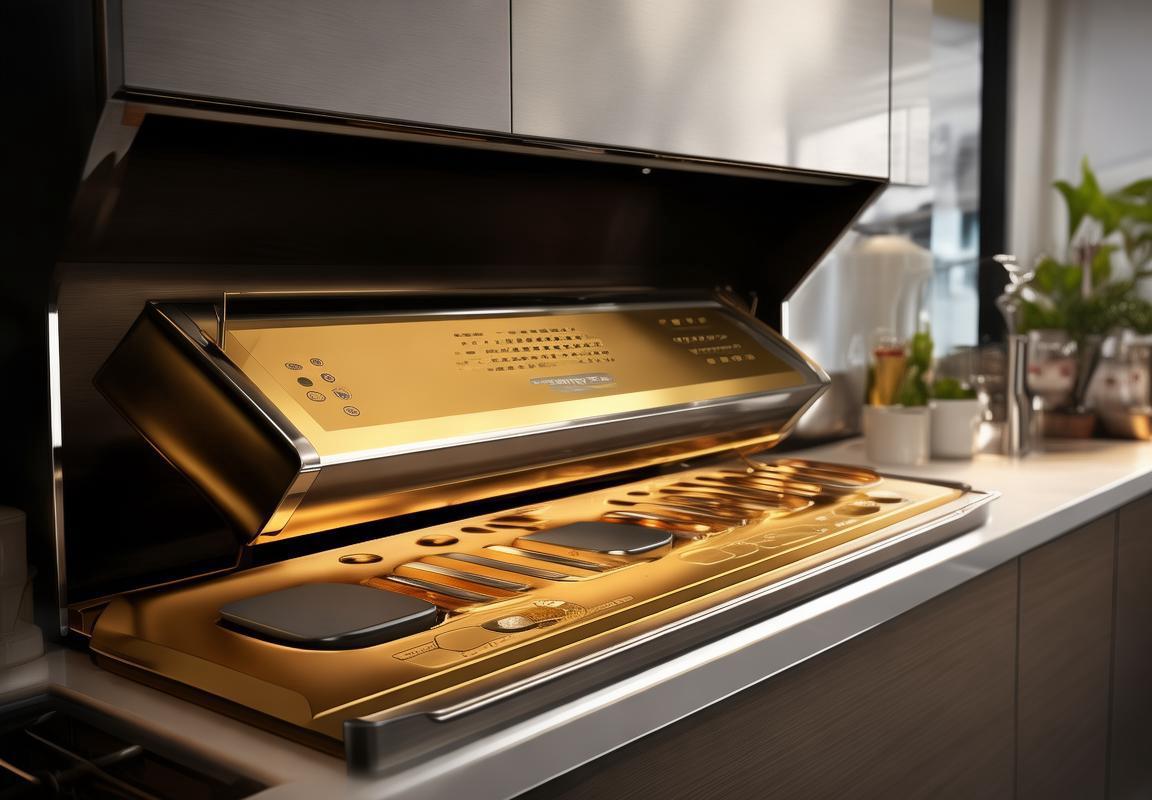
The Evolution of Grill Technology
The history of grill technology is a testament to human ingenuity and a deep-rooted love for outdoor cooking. From the earliest rudimentary forms to the sophisticated, bespoke contact grills of today, the evolution of grill technology reflects not just changes in materials and design, but also shifts in culinary culture and convenience.
In the beginning, grilling was a simple affair. People would gather around a hot fire, placing hunks of meat directly onto the flames or hot coals. These early grills were often makeshift, crafted from stones, metal, or whatever was readily available. The focus was purely on survival and the basic act of cooking, without much thought to flavor or presentation.
As societies advanced, so did their culinary techniques. The Romans are often credited with developing one of the first known dedicated grill structures—a circular grill, made from tiles or bricks, which could be covered with a lid to create a more controlled cooking environment. This early iteration of the grill was designed to improve the cooking process, allowing for more even heat distribution and a greater degree of control over food temperature.
The Industrial Revolution brought about significant advancements in grill technology. Cast iron and stainless steel became more readily available, allowing for the creation of more durable and versatile grills. This period saw the birth of the classic Weber kettle grill, which has since become an icon of backyard barbecues and outdoor cooking. The kettle design featured a dome-shaped lid that helped trap smoke and heat, contributing to the distinctive flavor of grilled meats.
In the mid-20th century, as the post-war consumer market boomed, the grill industry began to cater to a growing number of outdoor enthusiasts. This era marked the introduction of charcoal grills that offered a more nuanced grilling experience compared to the simpler gas grills that were just starting to emerge. Charcoal grills, with their smoky, smoky flavor and ability to maintain precise heat, became favorites among grill aficionados.
The 1960s saw the rise of the gas grill, which was quickly embraced for its convenience and ease of use. Propane and natural gas grills became the go-to choice for those who wanted to grill without the hassle of waiting for charcoal to heat up. These grills also offered better temperature control and could often come with multiple burners for simultaneous cooking.
As the years passed, grill technology continued to evolve, driven by consumer demand for more features and better performance. The introduction of infrared grilling in the 1980s was a game-changer, as it promised a faster cooking time and a more intense heat that could sear in flavors without burning the meat. Infrared grills also had the advantage of being able to adjust heat zones independently, allowing for more precise cooking.
The late 20th century saw a surge in the popularity of portable and compact grills. These smaller units were perfect for tailgating, camping, or anyone with limited space. The convenience of these portable grills made them a staple for many outdoor enthusiasts.
Enter the 21st century, and we find ourselves in an era where technology and design have merged to create bespoke contact grills. These grills are not just for cooking; they are statement pieces that reflect the personal style and cooking preferences of their owners. The bespoke approach allows for customization in terms of size, shape, and even the material, with high-end finishes like ceramic, copper, or brushed stainless steel becoming more common.
Modern contact grills have also seen significant technological advancements. Some come with built-in temperature sensors that maintain a precise cooking temperature, while others have smart features that can be controlled via a smartphone app. These grills are not just for the traditionalists; they cater to a new generation of cooks who value innovation and convenience.
The evolution of grill technology is a story of human creativity and adaptability. It started with a simple desire to cook food over a fire, but it has blossomed into a multi-billion-dollar industry that caters to a diverse range of tastes and needs. As we look to the future, one thing is certain: the grill will continue to evolve, bringing new possibilities and experiences to the culinary world.
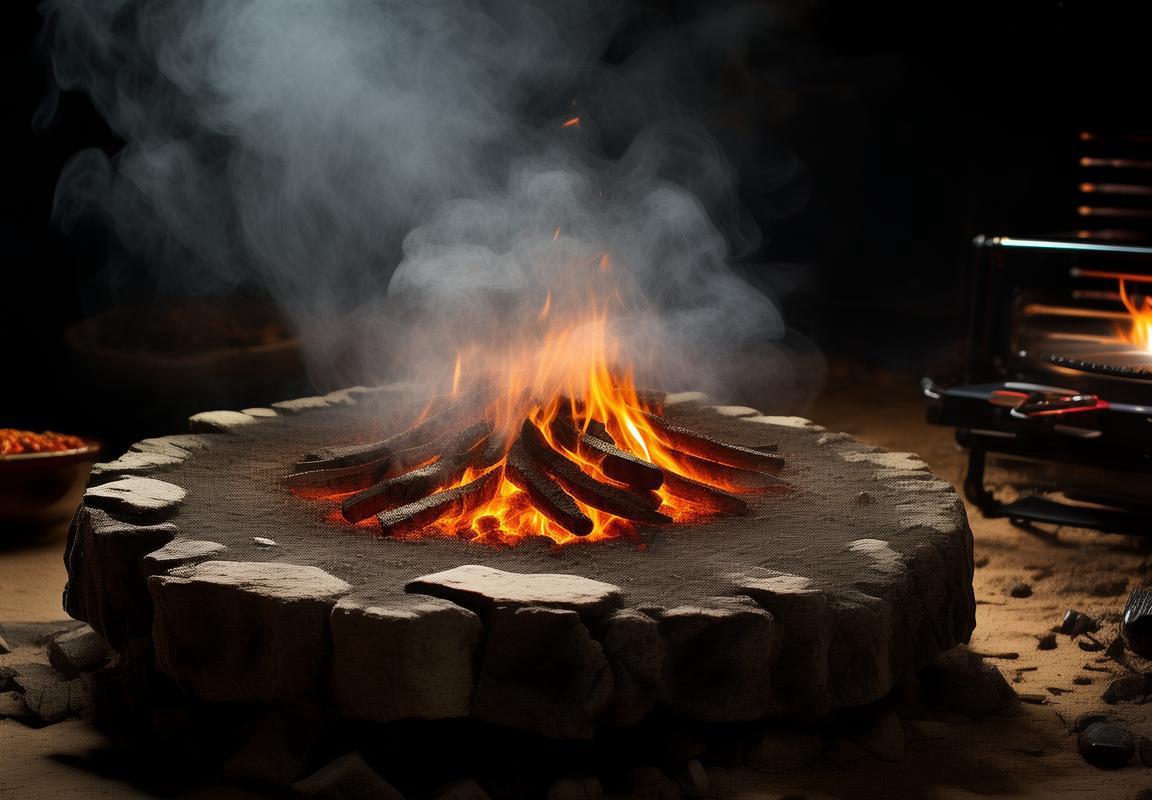
Why Bespoke Matters in the Kitchen
In the heart of modern kitchens, the concept of bespoke has transcended mere customization to become a statement of personal style and functionality. Bespoke kitchen appliances, including contact grills, have emerged as a testament to the evolving role of technology in our daily lives. Here’s why bespoke matters in the kitchen.
The kitchen, once a utilitarian space, has transformed into a hub of culinary creativity and self-expression. Bespoke appliances cater to this shift by offering tailored solutions that align with individual tastes and needs. From sleek design to advanced features, these customized products bridge the gap between form and function.
Imagine a kitchen where every appliance tells a story. Bespoke contact grills allow homeowners to select from a range of materials, colors, and finishes that reflect their personal aesthetic. Whether it’s a brushed stainless steel exterior or a retro red finish, these grills become more than just cooking tools; they are pieces of art that enhance the overall look and feel of the kitchen.
Personalization extends beyond appearance. Bespoke contact grills often come with customizable settings, such as adjustable heat controls and temperature gradients, which cater to diverse cooking preferences. From low and slow to high and fast, users can tailor their grilling experience to perfection.
Functionality is another key aspect where bespoke appliances shine. Modern kitchens are equipped with a myriad of devices, and each piece must work in harmony. Bespoke contact grills are designed to integrate seamlessly with other appliances, ensuring a cohesive kitchen ecosystem. This integration can include features like smart connectivity, which allows for remote temperature control and monitoring.
In the realm of sustainability, bespoke kitchen appliances play a crucial role. With the ability to specify materials and components, consumers can opt for eco-friendly options that align with their environmental values. From energy-efficient heating elements to recyclable materials, bespoke grills offer a greener alternative to mass-produced counterparts.
One of the most compelling reasons for the popularity of bespoke contact grills is the sense of exclusivity they provide. Owning a custom appliance is akin to having a unique signature in the kitchen. It’s a symbol of status and sophistication, a conversation starter that reflects the owner’s attention to detail and appreciation for quality.
Moreover, bespoke appliances often come with exceptional build quality. Handcrafted or carefully assembled, these grills are built to last, offering a longer lifespan than their mass-produced counterparts. This durability means that the initial investment can be justified over time, as the appliance remains a reliable and integral part of the kitchen for years to come.
Innovation is at the core of bespoke design. As technology advances, so does the potential for customization. Bespoke grills can incorporate cutting-edge features that are not yet available in standard models, such as advanced cooking surfaces that mimic the perfect sear of an outdoor grill or smart features that learn and adapt to the user’s grilling style.
Safety is another critical factor that bespoke appliances address. With the ability to specify safety features and certifications, homeowners can ensure that their custom grills meet the highest standards. This peace of mind is invaluable, especially for those with specific health or safety concerns.
Finally, the emotional connection that comes with owning a bespoke item cannot be overstated. The process of selecting and creating a custom contact grill can be a rewarding experience, fostering a deeper bond with the kitchen and the food that is prepared within it. This connection is a testament to the power of customization in creating a space that feels uniquely one’s own.
In a world where standardization often reigns supreme, bespoke kitchen appliances stand out as a beacon of individuality and innovation. They remind us that the kitchen, a place where we gather, cook, and create memories, is a canvas where personal style and functionality can be beautifully intertwined.
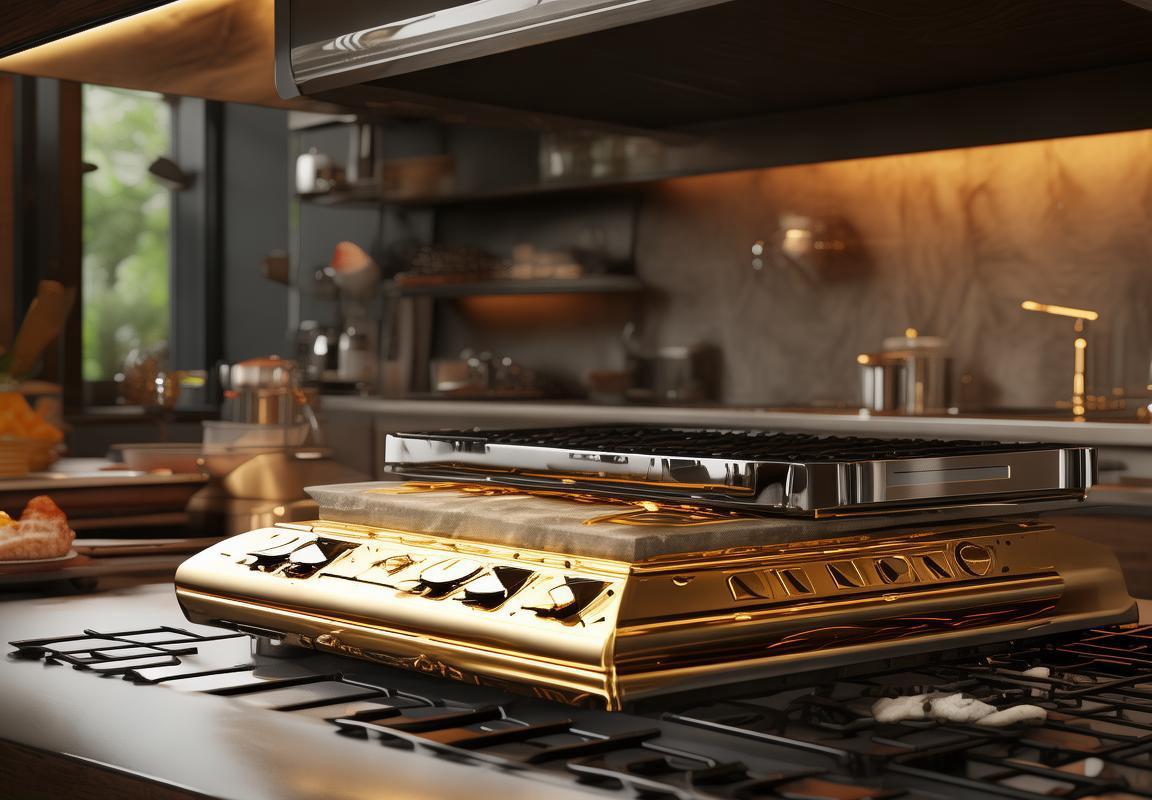
Market Dynamics in the US and European Kitchen Appliance Sectors
The US and European kitchen appliance sectors are dynamic landscapes, shaped by consumer trends, technological advancements, and cultural nuances. In this intricate tapestry, bespoke contact grills have carved out a niche, offering a unique blend of functionality and personalization.
In the United States, the kitchen appliance market is characterized by a strong focus on convenience and efficiency. Americans are increasingly looking for appliances that not only perform their core tasks but also integrate seamlessly into their lifestyles. The rise of bespoke contact grills reflects this desire for tailored solutions that cater to individual needs. The market is saturated with options, but bespoke grills provide a level of customization that off-the-shelf models cannot match.
European consumers, on the other hand, are more attuned to sustainability and innovation. The European kitchen appliance sector is known for its commitment to energy efficiency and eco-friendly designs. Bespoke contact grills in this region are not just about personalization; they often feature cutting-edge technology that reduces energy consumption and minimizes environmental impact.
The US market is driven by a diverse range of consumers with varying preferences. From urban professionals seeking compact, high-performance appliances to suburban families looking for durable and versatile options, there’s a wide spectrum of demand. Bespoke contact grills address this diversity by offering a variety of features, from adjustable temperature controls to non-stick surfaces that cater to different cooking styles.
In Europe, the market is similarly diverse, but with a stronger emphasis on the aesthetic appeal of kitchen appliances. Design plays a significant role in the European market, and bespoke contact grills often come with sleek, modern designs that complement contemporary kitchen aesthetics. The demand for smart features is also on the rise, with European consumers showing a preference for appliances that can be controlled via smartphones or voice assistants.
The technological landscape in both regions is rapidly evolving. Smart kitchen appliances are becoming increasingly popular, with features like Wi-Fi connectivity and Bluetooth integration allowing for remote control and monitoring. Bespoke contact grills are at the forefront of this trend, offering users the ability to preheat, adjust cooking times, and even monitor the progress of their meals from a distance.
In the United States, the market for kitchen appliances is also influenced by health and wellness trends. Consumers are more health-conscious than ever, and this has led to a surge in demand for appliances that can help them cook healthier meals. Bespoke contact grills that offer healthy cooking options, such as adjustable cooking temperatures that prevent the formation of harmful compounds, are particularly popular.
In Europe, there’s a growing awareness of the importance of kitchen safety. Appliances that come with advanced safety features, such as automatic shut-off functions and child locks, are highly sought after. Bespoke contact grills that incorporate these safety features can tap into this market segment, offering peace of mind alongside personalization.
The retail landscape in both the US and Europe is also changing. Online sales have been on the rise, with more consumers turning to e-commerce platforms for their appliance needs. Bespoke contact grills, with their unique selling points, are well-suited for online distribution. However, this shift also brings challenges, such as the need for clear communication of product specifications and the importance of building trust with customers who may not be able to physically inspect the product before purchase.
Marketing strategies in both regions are adapting to these changes. Social media and influencer partnerships are becoming more prevalent, as brands seek to engage with consumers on platforms where they spend a significant amount of their time. Bespoke contact grill manufacturers are leveraging these channels to showcase the uniqueness of their products and to connect with consumers who value personalization and innovation.
In conclusion, the market dynamics in both the US and European kitchen appliance sectors are complex, with a multitude of factors influencing consumer behavior. Bespoke contact grills stand out by offering a combination of personalization, technological innovation, and a focus on health, safety, and sustainability. As these markets continue to evolve, the bespoke segment is well-positioned to capitalize on emerging trends and consumer demands.
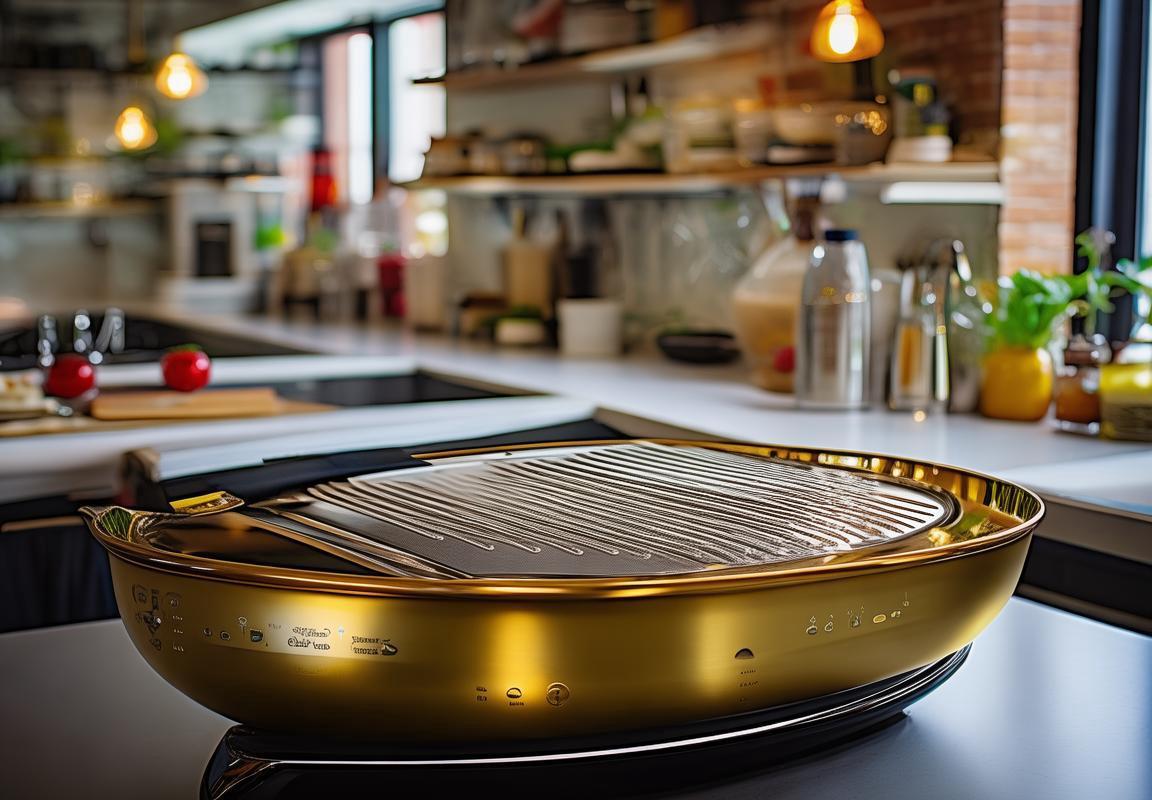
Consumer Preferences and Trends
In the ever-evolving landscape of kitchen appliances, consumer preferences and trends are the driving forces behind innovation and market growth. As we delve into the latest developments, several key trends emerge, shaping the way consumers interact with their kitchen tech.
The surge in health consciousness has led to a demand for appliances that not only enhance convenience but also promote healthier cooking methods. Consumers are increasingly seeking out kitchen gadgets that can help them prepare nutritious meals without compromising on taste or quality. This shift has spurred the popularity of contact grills, which offer a healthier alternative to traditional grilling methods, reducing the need for excessive oil.
Smart technology has become a cornerstone in the kitchen appliance market, with consumers gravitating towards devices that offer connectivity and control from their smartphones or tablets. Contact grills with built-in Wi-Fi capabilities and app integration are becoming more common, allowing users to monitor cooking times, temperatures, and even recipes remotely. This level of connectivity is not just about convenience; it’s about empowering consumers to take control of their culinary experiences.
The rise of minimalist and sleek design aesthetics has also influenced consumer preferences. Kitchen appliances that blend seamlessly into modern kitchen decor are in high demand. Contact grills with compact designs and stainless steel finishes are not only functional but also serve as stylish additions to any kitchen counter. This trend reflects a broader move towards simplicity and elegance in home interiors.
Customization is another trend that’s gaining traction. Consumers are no longer satisfied with one-size-fits-all solutions; they want appliances that cater to their unique needs and preferences. Bespoke contact grills allow users to choose from a variety of features, from different cooking surfaces to adjustable heat settings, ensuring that the appliance matches their specific cooking style and dietary requirements.
Eco-consciousness is on the rise, with more consumers seeking out appliances that are environmentally friendly. This includes energy-efficient models that consume less power and those made from sustainable materials. Contact grills that are designed with the environment in mind not only reduce carbon footprints but also resonate with consumers who are committed to making sustainable choices.
The preference for convenience cooking has seen a significant increase, especially among busy professionals and families. Contact grills are a perfect example of this trend, offering a quick and easy way to cook a variety of foods, from meats and vegetables to sandwiches and pancakes. The compact size and ease of use make them a convenient choice for those who value time-saving appliances without sacrificing quality.
The integration of sous-vide cooking technology into contact grills is another emerging trend. This method of cooking food in a vacuum-sealed bag at a precise temperature has gained popularity for its ability to achieve perfect doneness and flavor. Consumers who are interested in this high-end cooking technique are looking for contact grills that can offer both traditional grilling and sous-vide capabilities.
Lastly, the influence of social media and online reviews cannot be overstated. Consumers are more likely to make purchasing decisions based on the experiences and recommendations of others. Contact grill brands that have a strong online presence and positive user feedback are more likely to capture the attention of potential buyers.
In conclusion, consumer preferences and trends in the kitchen appliance sector are diverse and multifaceted. From health and convenience to design and sustainability, these factors are shaping the future of contact grills and other kitchen appliances. Brands that stay attuned to these evolving preferences will be well-positioned to meet the demands of today’s consumers.
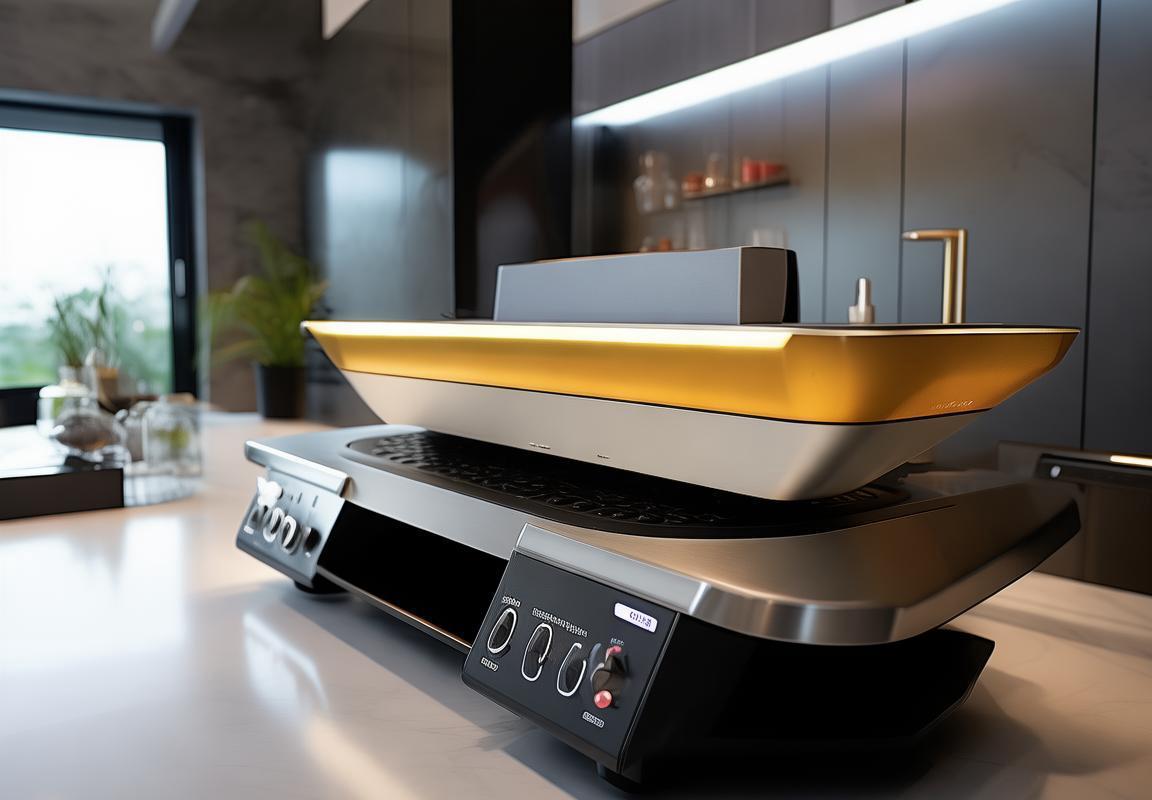
Innovative Features of Bespoke Contact Grills
Bespoke contact grills have been making waves in the kitchen appliance market, offering a blend of customization and advanced technology. Here are some of the innovative features that set these grills apart:
-
Customizable Size and Shape: One of the standout features of bespoke contact grills is the ability to tailor them to specific kitchen sizes and preferences. Whether it’s a compact grill for a small countertop or a larger, more robust model for a commercial kitchen, the options are vast. This ensures that the grill not only fits the space but also complements the overall kitchen design.
-
Precise Temperature Control: Advanced thermostats allow users to set and maintain precise temperatures for different types of cooking. From searing steaks to delicate fish fillets, the ability to control the heat is crucial. Some models even come with digital displays that show the current temperature, making it easier to achieve perfect cooking results every time.
-
Non-Stick Coating: High-quality non-stick coatings are a game-changer for contact grills. They reduce the need for excessive oil, making the cooking process healthier and less messier. The longevity of these coatings is also impressive, as they are designed to withstand frequent use without peeling or flaking.
-
Integrated Smoke Management: Bespoke contact grills often come with features that help manage smoke and odors. Some models include a smoke filter system that captures smoke before it escapes into the kitchen, while others have a built-in vent or hood to direct smoke away from the cooking area.
-
Multiple Cooking Surfaces: Many bespoke contact grills offer more than one cooking surface, allowing for versatility in meal preparation. For example, a grill with a flat top and a ribbed surface can cook steaks and burgers with the flat side while searing vegetables and meats on the ribbed side.
-
Safety Features: Safety is a top priority in bespoke contact grills. Many models include features like cool-touch handles and safety interlocks that prevent the grill from operating unless it’s properly closed. Some grills also come with automatic shut-off functions to prevent overheating.
-
Ergonomic Design: The design of bespoke contact grills is not just about aesthetics; it’s also about functionality. Grills are often designed with ergonomic handles and controls that are easy to use, even with gloves or when cooking with gloves. The placement of controls is thoughtful, allowing for easy adjustments without the need to open the lid or stop cooking.
-
Built-in Slicers and Meat Searers: Some bespoke contact grills are equipped with built-in slicing and meat searing tools. These tools can be used to create professional-looking cuts of meat and to achieve a perfect sear, which adds a level of convenience and sophistication to the cooking process.
-
Smart Technology Integration: As technology continues to advance, bespoke contact grills are starting to integrate smart features. This can include Wi-Fi connectivity, allowing users to control the grill remotely through a smartphone app, or Bluetooth capabilities for pairing with other kitchen appliances.
-
Sustainability and Energy Efficiency: With environmental concerns on the rise, bespoke contact grills are increasingly being designed with sustainability in mind. Features like energy-efficient heating elements and eco-friendly materials are becoming more common, appealing to consumers who are conscious of their carbon footprint.
-
Versatile Cooking Modes: From grilling to toasting, searing, and even baking, bespoke contact grills are designed to do it all. These grills often offer a variety of cooking modes and settings, making them a versatile addition to any kitchen.
The innovative features of bespoke contact grills reflect a deep understanding of consumer needs and preferences. By offering customization, precise control, and advanced technology, these grills are not just cooking appliances; they are integral parts of the modern kitchen experience.
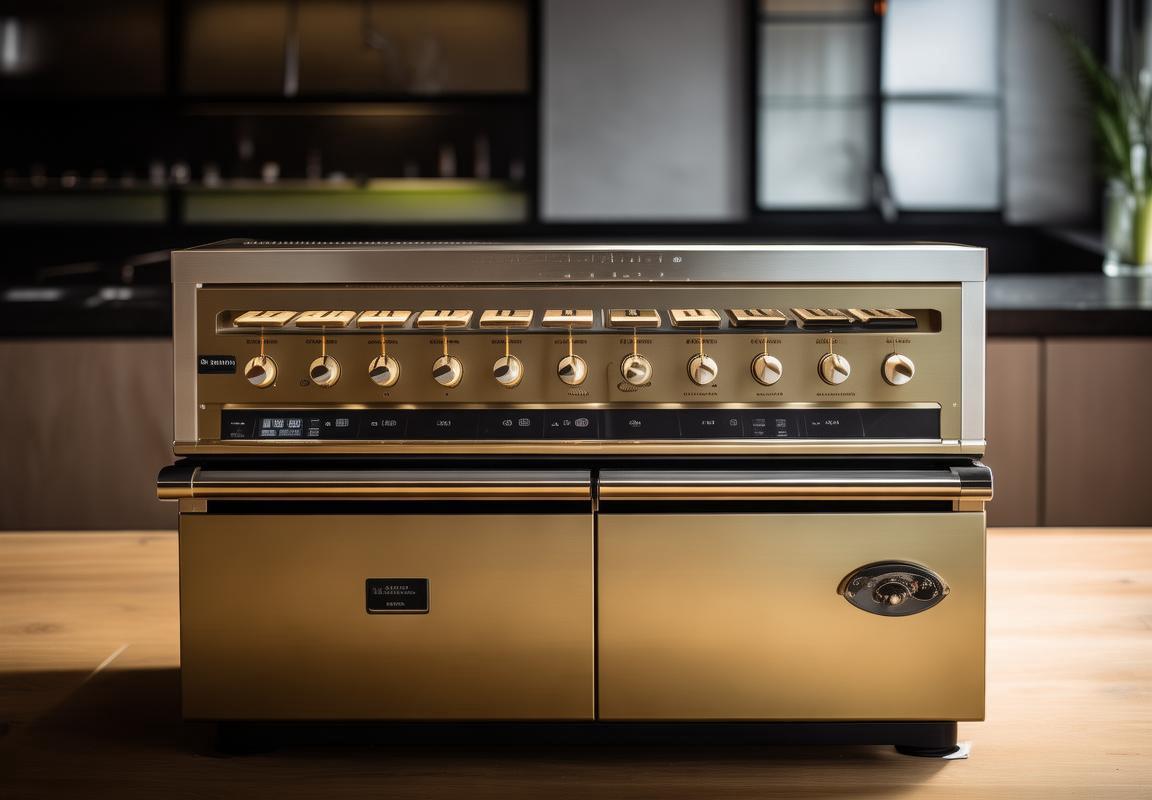
Case Studies: Successful Bespoke Grill Brands
In the world of bespoke kitchen appliances, a few brands have stood out with their unique approach to contact grill design and functionality. Let’s delve into the success stories of a couple of these brands.
The Artisan Chef’s Signature SeriesThe Artisan Chef has made a name for itself by offering custom-built contact grills that cater to the specific needs of professional chefs and home enthusiasts alike. Their Signature Series stands out for its modular design, allowing users to swap out cooking surfaces for different types of grilling experiences. One of their most innovative features is the adjustable temperature control system, which allows for precise cooking temperatures, from delicate searing to low and slow smoking.
The sleek, brushed stainless steel exterior not only looks stunning but also ensures durability. The brand’s dedication to quality is evident in the high-grade materials used for the cooking plates, which are designed to prevent sticking and promote even heat distribution. The Signature Series has been a hit with gourmet chefs looking to add a touch of personalization to their kitchen setups.
Gourmet Grill InnovationsGourmet Grill Innovations (GGI) has carved a niche in the bespoke contact grill market with its focus on eco-friendly and sustainable materials. Their grills are crafted from recycled stainless steel and bamboo, which not only reduces the carbon footprint but also gives the appliances a unique, earthy aesthetic. GGI’s commitment to sustainability doesn’t compromise on performance; their contact grills are engineered to maintain consistent temperatures, ensuring that every meal is cooked to perfection.
One of the standout features of GGI’s grills is the innovative “SmartGrill” technology, which connects to a smartphone app for real-time temperature monitoring and cooking time adjustments. This has been particularly appealing to tech-savvy consumers and food bloggers who appreciate the ability to control their grill remotely.
The Bespoke Collection by Chef’s DelightChef’s Delight’s Bespoke Collection offers a range of contact grills that are as much a piece of art as they are kitchen appliances. Each grill is handcrafted by skilled artisans, with customers able to choose from a variety of finishes, including brushed nickel, polished chrome, and even copper. The brand’s attention to detail is unmatched, with custom-made cooking surfaces that can be tailored to specific cooking styles, whether it’s a classic flat grilling experience or a more unconventional approach like grilling with herbs or spices embedded in the surface.
Chef’s Delight also prides itself on its customer service, offering personalized consultations to help clients select the perfect grill for their kitchen. The Bespoke Collection has garnered a loyal following among culinary professionals and those who value a personalized touch in their kitchenware.
The Modern Chef’s Grill by Urban KitchenUrban Kitchen’s Modern Chef’s Grill has become a favorite among urban dwellers who want a high-quality contact grill that fits seamlessly into their compact living spaces. The brand’s innovative compact design doesn’t sacrifice on cooking power, with a focus on efficient heat distribution and a quick heat-up time. The grill’s sleek, minimalist look is complemented by a range of smart features, such as a built-in thermometer and a programmable timer.
Urban Kitchen’s success lies in its ability to cater to the needs of modern consumers who are looking for appliances that not only perform well but also reflect their personal style. The brand’s use of high-quality materials and its commitment to craftsmanship have made the Modern Chef’s Grill a go-to choice for those who demand excellence in their kitchen appliances.
The Custom Grill Co.The Custom Grill Co. has taken the bespoke market by storm with its bespoke grilling experience. Customers can start with a blank canvas and choose from a wide array of materials, colors, and designs to create a grill that is truly one-of-a-kind. The brand’s customizability extends to the cooking surfaces, which can be made from a variety of metals, including copper, which is known for its excellent heat conductivity.
The Custom Grill Co. also offers a range of add-ons, such as temperature-controlled zones and built-in smoking capabilities. This level of customization has attracted a niche market of culinary enthusiasts who are looking to push the boundaries of traditional grilling and add a touch of personal flair to their cooking.
In conclusion, the success of these bespoke grill brands lies in their ability to combine innovative design with personalized service. Whether it’s the modular functionality of the Artisan Chef’s Signature Series, the eco-friendly approach of Gourmet Grill Innovations, the artistic craftsmanship of Chef’s Delight, the smart features of Urban Kitchen’s Modern Chef’s Grill, or the ultimate customizability of The Custom Grill Co., these brands have shown that in the world of contact grills, anything is possible.
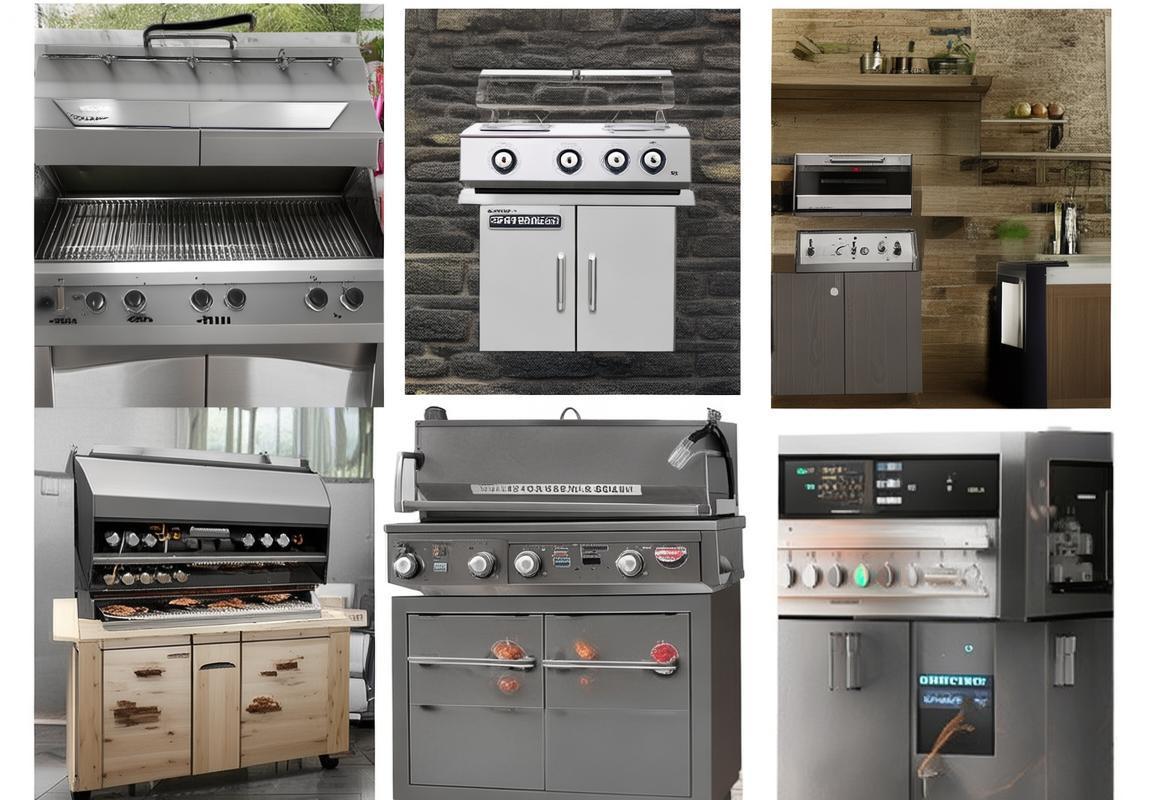
Challenges and Opportunities in Bespoke Grill Manufacturing
In the world of bespoke grill manufacturing, challenges and opportunities coexist like a sizzle on a hot grill. Crafting custom-made appliances requires a delicate balance of craftsmanship, innovation, and market understanding. Here’s a closer look at the complexities and prospects that shape this niche industry.
Craftsmanship and Customization Demands PrecisionThe art of bespoke grill manufacturing hinges on the ability to cater to individual tastes and preferences. Each piece is a testament to the skill of the craftsmen who pour their hearts into creating something unique. However, this level of customization demands precision in design, materials, and assembly, which can be a significant challenge for manufacturers.
Material Selection: A Balancing ActChoosing the right materials is crucial in bespoke grill manufacturing. High-quality steel, stainless steel, and other durable materials are often preferred. Yet, the choice of materials must balance durability with aesthetic appeal and budget constraints. Suppliers must be reliable, and materials must be readily available to meet the diverse needs of customers.
Design Flexibility: The Heart of BespokeThe ability to design bespoke grills that cater to specific requirements is the heart of the industry. This flexibility allows for personalized features such as non-standard sizes, unique finishes, and innovative cooking surfaces. However, it also means that designers must constantly stay abreast of market trends and customer preferences to ensure that their products remain relevant and attractive.
Sustainability and Eco-Friendly PracticesAs consumers become more environmentally conscious, sustainable manufacturing practices have become a focal point. Bespoke grill manufacturers must navigate the challenge of creating products that are not only high-quality but also eco-friendly. This includes sourcing sustainable materials, reducing waste, and ensuring energy-efficient production processes.
Supply Chain ComplexityThe supply chain for bespoke grill manufacturing is intricate. It involves sourcing materials, managing inventory, and coordinating production with tight deadlines. A single delay or disruption can throw the entire production schedule off track. Manufacturers must be adept at managing their supply chain to ensure that they can deliver customized products on time.
Cost Management and Pricing StrategiesPricing bespoke grills is a delicate task. The cost of materials, labor, and production must be carefully calculated to ensure profitability while remaining competitive in the market. Yet, the bespoke nature of these products often commands a premium. Finding the right balance between cost and value is essential for long-term success.
Quality Control and AssuranceMaintaining consistent quality is paramount in bespoke manufacturing. Each grill must meet the highest standards of craftsmanship and functionality. This requires robust quality control measures throughout the production process. Investing in skilled labor and advanced technology can help ensure that every custom grill meets the high expectations of customers.
Market Expansion and DiversificationBespoke grill manufacturers face the challenge of expanding their market reach. This may involve targeting new customer segments, entering new geographic markets, or diversifying their product lines. The opportunity here is to tap into a growing market of consumers who appreciate the uniqueness and quality of custom-made appliances.
Globalization and Cultural NuancesAs the industry becomes more globalized, bespoke grill manufacturers must also navigate cultural nuances. What’s considered a premium feature in one region might not resonate with another. Understanding these differences and adapting products accordingly is key to successful international expansion.
Technology IntegrationThe integration of technology into bespoke grill manufacturing offers both challenges and opportunities. Advanced machinery can streamline production and improve efficiency, but it also requires a skilled workforce to operate and maintain. Embracing technology can lead to more precise and innovative products, but it also demands ongoing investment in training and infrastructure.
In conclusion, the bespoke grill manufacturing industry is fraught with challenges, from the intricate details of craftsmanship to the complex demands of a global market. Yet, within these challenges lie significant opportunities for growth, innovation, and success. By navigating the balance between tradition and modernity, manufacturers can create custom grills that not only satisfy but also exceed customer expectations.
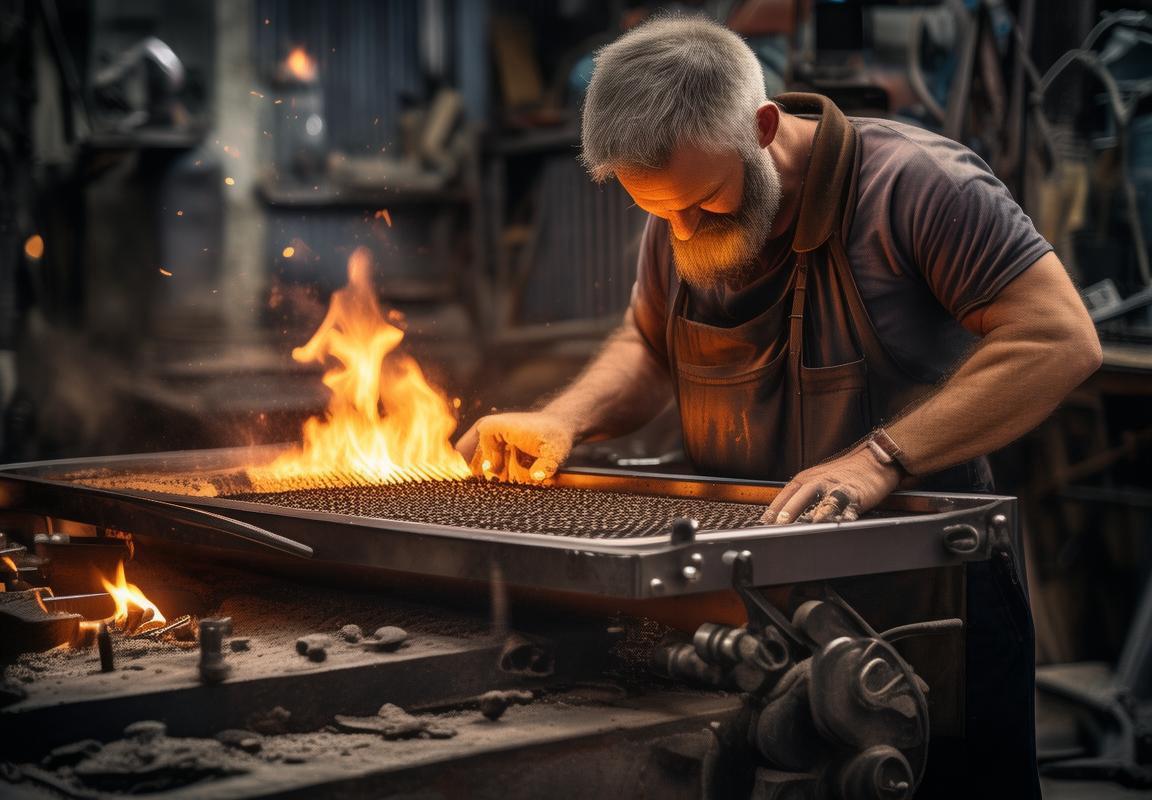
Impact of Sustainability on Bespoke Grill Design
In recent years, sustainability has become a cornerstone of product design across various industries, and the bespoke grill market is no exception. The integration of eco-friendly practices and materials into the design and manufacturing process of these specialized grills has not only addressed environmental concerns but has also opened up new opportunities for innovation and market differentiation. Here’s a closer look at how sustainability is reshaping bespoke grill design:
The shift towards sustainability in bespoke grill design has led to the use of recycled and recyclable materials. From the stainless steel used for the grill’s body to the non-toxic coatings applied to prevent rust and corrosion, every element is carefully selected to reduce the carbon footprint. Recycled materials are not just a trendy choice; they’re a testament to a brand’s commitment to environmental stewardship.
One of the most significant impacts of sustainability on bespoke grill design is the emphasis on energy efficiency. Modern grills are now equipped with advanced heat distribution systems that minimize energy consumption while maximizing cooking performance. Features like programmable settings, which allow users to tailor the cooking temperature and time, have become standard, reducing the need for excessive energy use.
Eco-friendly manufacturing processes have also become a focal point. Brands are investing in water-efficient production techniques and reducing waste by optimizing their supply chains. Bespoke grills are now often assembled in facilities that adhere to stringent environmental regulations, ensuring that the production process itself is as sustainable as the end product.
The design of bespoke grills has evolved to incorporate modular and interchangeable parts. This approach not only simplifies maintenance and repair but also allows for easy upgrades and customization. Modular designs mean that components can be replaced or upgraded without having to discard the entire grill, thus extending its lifespan and reducing waste.
Sustainability has also brought about a greater focus on the longevity of the product. Bespoke grills are now designed with durability in mind, featuring robust construction and high-quality materials that stand the test of time. This not only appeals to environmentally conscious consumers but also ensures that the grill remains a valuable investment.
In the realm of aesthetics, sustainability has influenced the choice of finishes and colors. Natural materials like bamboo and wood have been integrated into the design, offering a rustic yet modern look that aligns with the growing preference for eco-conscious aesthetics. Moreover, the use of water-based paints and finishes has replaced traditional solvent-based ones, reducing the emission of volatile organic compounds (VOCs).
The impact of sustainability on bespoke grill design extends beyond the physical product. Brands are now offering educational resources and guides to help consumers understand how to use and maintain their grills in an environmentally friendly way. This includes tips on choosing the right fuel, proper cleaning methods, and even advice on how to repurpose the grill when it reaches the end of its life cycle.
Sustainability has also spurred innovation in the features and functionality of bespoke grills. For example, some models now come with built-in sensors that monitor and optimize fuel consumption, while others are designed to capture and reuse heat, reducing energy waste.
The market for bespoke grills that prioritize sustainability has seen a surge in demand. Consumers are increasingly looking for products that align with their values, and the eco-friendly design of these grills speaks to a broader shift in consumer consciousness. As a result, brands that embrace sustainability in their design and manufacturing processes are not only contributing to a healthier planet but are also tapping into a lucrative market segment.
In conclusion, sustainability has become a transformative force in the design of bespoke grills. By focusing on environmental responsibility, brands are not only addressing contemporary concerns but are also driving innovation and creating a more sustainable future for both the industry and the planet.
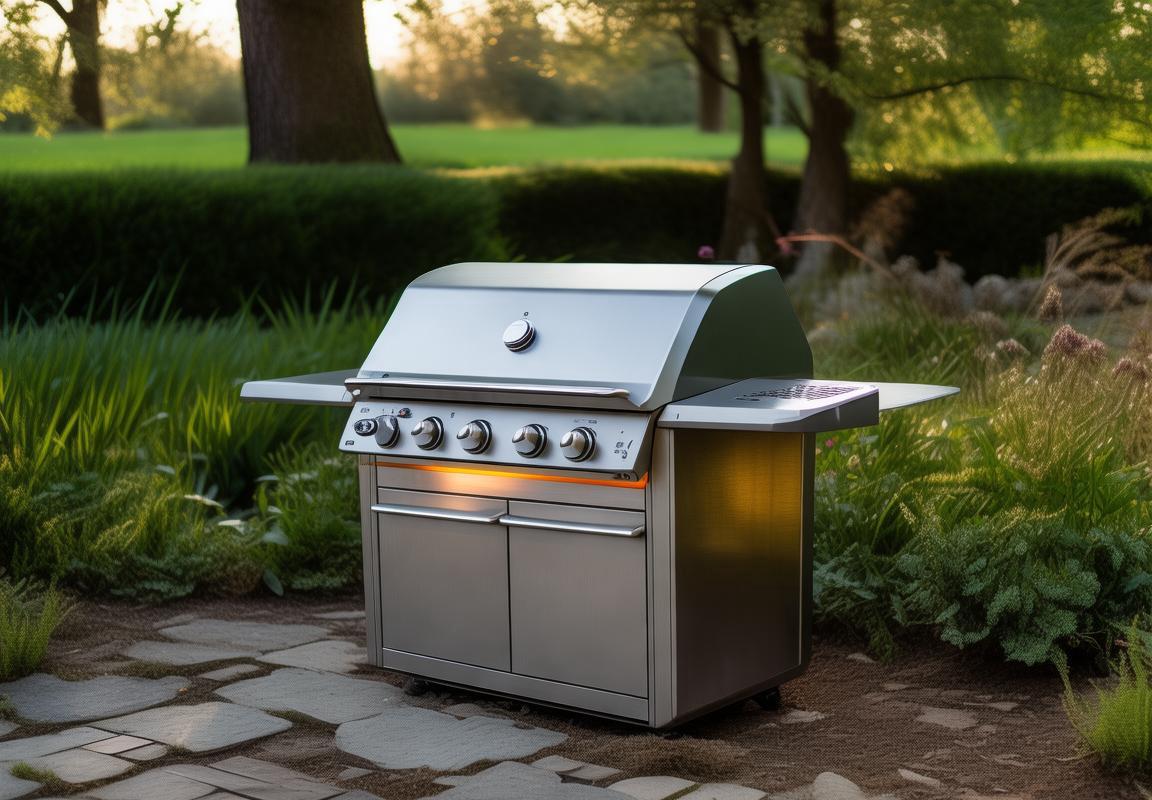
The Future Outlook for Bespoke Contact Grills
In the realm of kitchen appliances, bespoke contact grills have emerged as a testament to the evolving tastes and needs of consumers. These customized cooking tools are not just a trend; they represent a shift towards personalization and innovation. The future of these grills looks promising, with advancements in technology and design poised to shape the market landscape. Here are some key factors that will influence the outlook for bespoke contact grills:
The integration of smart technology is already making waves in the kitchen appliance sector, and bespoke contact grills are no exception. Imagine a grill that not only adjusts its temperature settings based on the type of food being cooked but also provides real-time feedback and cooking tips. Such features could become standard in the future, enhancing the user experience and making cooking more intuitive.
Customization is at the heart of the bespoke market. As consumers become more discerning, they seek appliances that reflect their personal style and preferences. The future of bespoke contact grills will likely see a surge in options for materials, finishes, and even cooking surfaces. From high-end stainless steel to eco-friendly bamboo, the variety of choices will cater to a wide range of tastes and budgets.
Health and wellness are paramount in today’s society, and this is reflected in the kitchen. Bespoke contact grills could incorporate features that promote healthier cooking methods, such as non-stick surfaces that reduce the need for excessive oil. Additionally, with the rise of plant-based diets, grills that can handle a variety of ingredients, including vegetables and tofu, will become increasingly popular.
The environmental impact of kitchen appliances is a growing concern. As such, sustainable practices in manufacturing and design will become more prevalent. Bespoke contact grills might feature recycled materials, energy-efficient components, and designs that are easy to disassemble and recycle at the end of their life cycle. This focus on sustainability will not only appeal to eco-conscious consumers but also help manufacturers meet stricter environmental regulations.
The global kitchen appliance market is diverse, with different regions showing unique preferences and trends. In North America, there’s a strong emphasis on convenience and innovation, which could lead to the development of grills that combine high-tech features with ease of use. In Europe, there’s a greater focus on sustainability and health, which might drive the creation of grills that are not only eco-friendly but also promote a balanced diet.
The rise of e-commerce has transformed how consumers discover and purchase products. Bespoke contact grills could benefit from this shift by offering online configurators that allow customers to design their perfect grill from the comfort of their homes. This personalized shopping experience could lead to higher customer satisfaction and loyalty.
As the world becomes more connected, the sharing of ideas and trends across borders will accelerate. Collaborations between international brands and local artisans could lead to the creation of unique and culturally inspired bespoke grills. This fusion of global and local elements could open up new markets and opportunities for growth.
The competitive landscape in the kitchen appliance industry is fierce, with established players and emerging brands vying for market share. Bespoke contact grill manufacturers will need to differentiate themselves through unique selling propositions, such as superior craftsmanship, cutting-edge technology, or exceptional customer service.
The future of bespoke contact grills is also intertwined with the broader culinary landscape. As food culture evolves, so too will the types of grills available. We might see an increase in grills designed for specific types of cuisine, such as those tailored for BBQ enthusiasts or gourmet chefs looking for precision control.
In conclusion, the future of bespoke contact grills is bright, with a multitude of opportunities for innovation and growth. By focusing on technology, customization, sustainability, and cultural diversity, manufacturers can create grills that not only meet but exceed consumer expectations. The key will be to stay adaptable and responsive to the changing demands of the market, ensuring that bespoke contact grills remain a staple in modern kitchens for years to come.